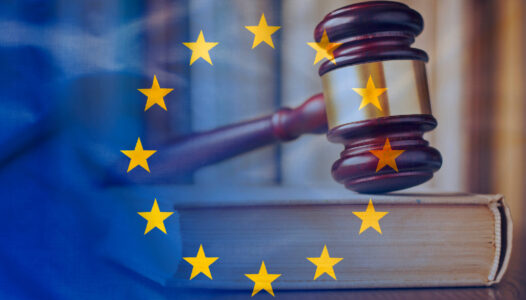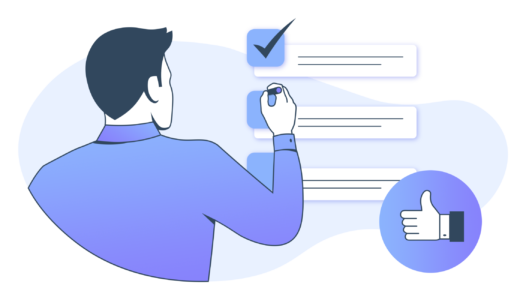by Daniel Vaknine
Whistleblowing can be a complex subject with many layers and parts. For those of you not working directly with whistleblowing, here’s everything you need to know about whistleblowing in one place. First of all, what exactly is whistleblowing? Whistleblowing is when someone, for example an employee, reports wrongdoing that they believe is in the public interest. Whistleblowing can, for example, concern illegal activities, such as embezzlement or corruption, or unethical/unfair behaviour at work, such as racism, sexism, or homophobia. Depending on the policy, these problems may be brought to the attention of an authorised person or group either inside or outside the workplace, although the latter is usually not “whistleblowing” in the sense of the law.
In any case, whistleblowing is therefore not a personal issue or a quarrel with a colleague. It is instead about the well-being of all employees, and that rules, laws and policies are followed by the organisation and the employees.
For more information on this issue, read more about employee misconduct in the workplace.
How is the anonymity of whistleblowers protected?
Errors can be reported in different ways, including publicly, privately or anonymously. The new EU whistleblowing law requires companies to create ways for people to report wrongdoing and to take steps to protect whistleblower privacy. It is not always a requirement to have anonymous ways of reporting, but it is a good idea to do so. Especially as it increases the chance that someone will dare to report, and facilitates compliance with the legal requirements (for EU companies with over 50 employees).
External whistleblowing
Publicly reporting irregularities to the media is often not the first step, as you can also draw attention to misconduct within the company. In a perfect world, everyone would report errors as soon as they are discovered. This is why internal whistleblowing is superior to external whistleblowing, both for the whistleblower and the company.
When employees blow the whistle publicly/externally, matters are often complicated, although it is of course a good thing to do if no one listens internally.
Not familiar with the terminology? Learn more about the difference between internal and external whistleblowing.
Confidential whistleblowing
In a confidential report, an employee states their name and asks that it not be shared with anyone apart from case managers without their permission. A confidential message ensures that there is a way to get in touch with the whistleblower to get additional information or provide feedback. Experts agree that confidential whistleblowing is a viable option, but that anonymous whistleblowing should be preferred. More about anonymous whistleblowing soon.
In this case, the company must make every effort to keep the whistleblower’s identity confidential. Otherwise, employees will not trust the error reporting methods and will not use them, so errors will not be detected. Not to mention that revealing the identity of the whistleblower would actually violate the Whistleblower Act.
Anonymous whistleblowing
However, the best way to protect whistleblowers is to offer anonymity. If no one knows who reported the wrongdoing, the whistleblower can rest assured that he/she will not be subject to reprisals, while compliance with the whistleblower law is simplified and confidence in the whistleblower function is increased. Another benefit that may not be as well-publicized is that if the whistleblower’s name is kept secret, the focus remains on the reported violation and not on the whistleblower. In short, anonymous reporting in whistleblowing is therefore preferable.
In order for the communication to be confidential (or, if desired, anonymous), the company must establish an internal means of receiving whistleblowing reports. It is becoming increasingly common for this to be done with digital and anonymous whistleblowing functions. This way, whistleblowing can be done in a way that protects the integrity (or anonymity) of the whistleblower. Also read: What is a whistleblower system?
The company must also appoint people to handle incoming cases, and it is important that these be independent and independent, while also having sufficient competence to handle any cases. Case managers can also be externally appointed individuals, such as external lawyers.
Do whistleblowers have to gather their own evidence before reporting something?
No, it is not always necessary to collect evidence on your own before filing a report. In fact, it can sometimes be downright dangerous for an employee to attempt to collect evidence on their own. It is often better to have a professional investigation take place to look into the matter. If it should be the case that the whistleblower already has evidence ready, they should, of course, attach this in connection with your report.
Even if proof is not a requirement, it is of the highest importance that the report is made in good faith.
What can you blow the whistle on?
As a whistleblower, you can report an incident that you have knowledge of, whether it is an ongoing incident, something that has already happened or something that may happen in the future. The EU Whistleblowing Directive covers most types of whistleblowing, as long as, among other things, it is done in good faith and with reasonable grounds to believe that the information is true.
What is a whistleblowing policy?
Basically, it’s a document where you explain your organisation’s policy on whistleblowing, who can report what etcetera. It’s important to establish one as a part of your whistleblowing function so that employees know this, how to report and so on.
What do we need to do as an EU company with 50+ employees?
It differs a bit between EU countries, but generally speaking, you need to implement a reporting channel (also known as a whistleblowing function, system or such) before the 17th of December 2023. This includes a technical system, policy and routines for handling incoming reports.
The author, Daniel Vaknine, is CEO and Partner of Visslan, a Swedish-based whistleblowing solution to simplify whistleblowing and compliance with the new EU Whistleblowing Directive.






